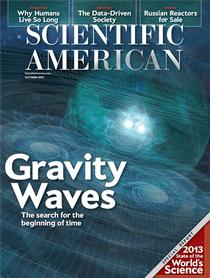When Science Doesn’t Support Beliefs
Then ideology needs to give way

Ever since college I have been a libertarian—socially liberal and fiscally conservative. I believe in individual liberty and personal responsibility. I also believe in science as the greatest instrument ever devised for understanding the world. So what happens when these two principles are in conflict? My libertarian beliefs have not always served me well. Like most people who hold strong ideological convictions, I find that, too often, my beliefs trump the scientific facts. This is called motivated reasoning, in which our brain reasons our way to supporting what we want to be true. Knowing about the existence of motivated reasoning, however, can help us overcome it when it is at odds with evidence.
Take gun control. I always accepted the libertarian position of minimum regulation in the sale and use of firearms because I placed guns under the beneficial rubric of minimal restrictions on individuals. Then I read the science on guns and homicides, suicides and accidental shootings (summarized in my May column) and realized that the freedom for me to swing my arms ends at your nose. The libertarian belief in the rule of law and a potent police and military to protect our rights won’t work if the citizens of a nation are better armed but have no training and few restraints. Although the data to convince me that we need some gun-control measures were there all along, I had ignored them because they didn’t fit my creed. In several recent debates with economist John R. Lott, Jr., author of More Guns, Less Crime, I saw a reflection of my former self in the cherry picking and data mining of studies to suit ideological convictions. We all do it, and when the science is complicated, the confirmation bias (a type of motivated reasoning) that directs the mind to seek and find confirming facts and ignore disconfirming evidence kicks in. (continue reading…)


